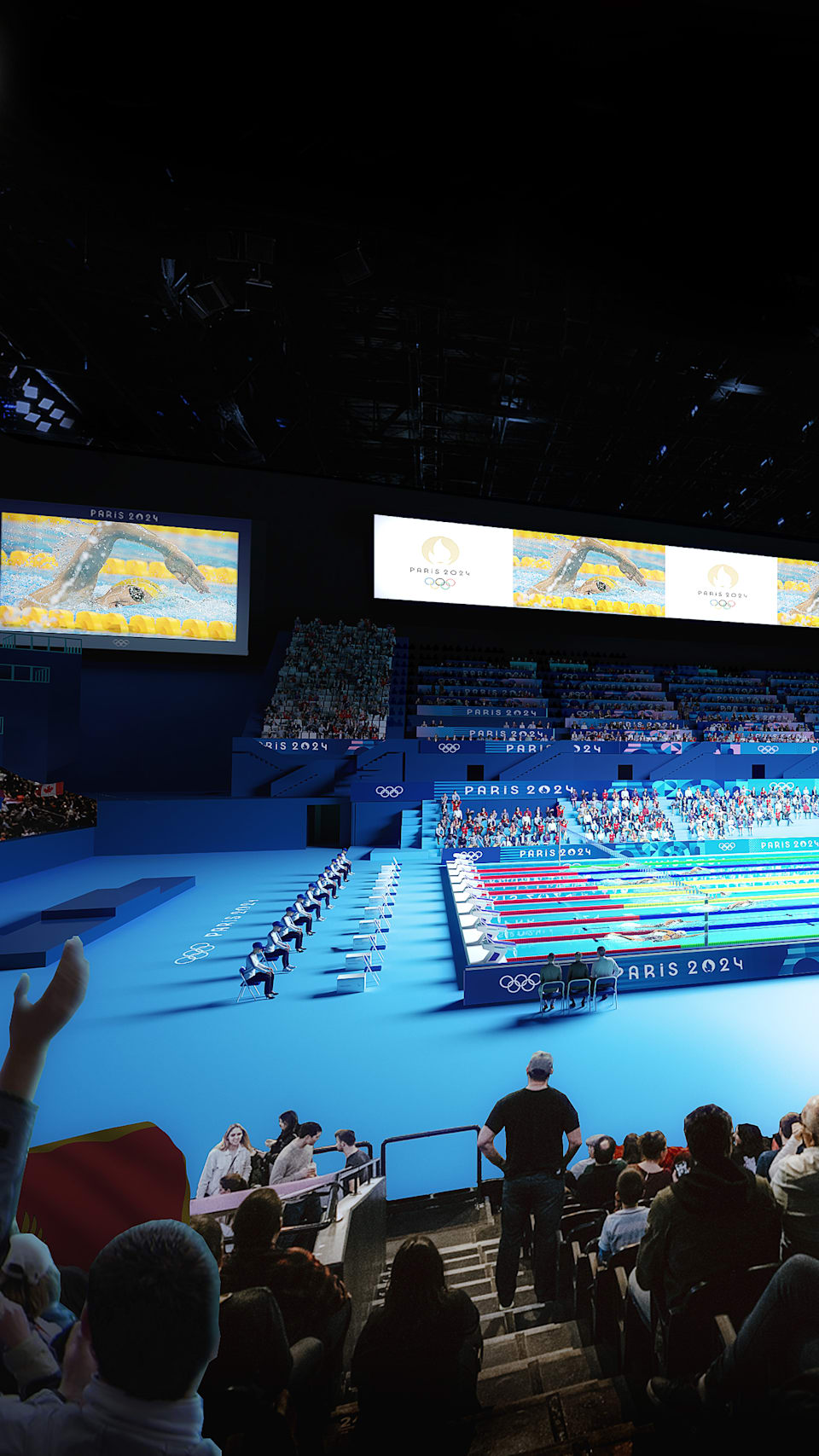
Deploying more responsible digital technology
From computers to televisions, websites and apps, digital technology is present on every level for the organisation of the Games. Paris 2024 is taking action to reduce the impact of digital technology, by optimising the volumes involved, rolling out a more responsible sourcing approach and planning ahead for the equipment’s second life.
Key figures
- More than 70% of equipment leased
- 100% of the equipment purchased will have a second life (reconditioning or reuse)
- Ecodesign of the most widely used public apps
Reducing requirements
Digital activities represent nearly 7% of the total carbon footprint for the Games, linked primarily to the equipment deployed. To reduce the impact of digital technology, Paris 2024 is focused on a more responsible commitment: optimising the volumes involved by pooling uses wherever possible. Particular care has been taken with equipment involving the highest carbon footprint, such as the televisions or printers for instance.
Reducing the volumes of equipment, adopting smaller screen sizes, fitting out the spaces... these solutions have made it possible to reduce the impact of digital technology:
- Televisions : Volumes reduced by -28%
- Printers : Volumes reduced by -27%
- 32" screens instead of 55" : for 1,000 units
Promoting leasing
For digital technology, as for all the activities involved in organising the Games, Paris 2024 is prioritising more virtuous solutions when possible.
This is being achieved through its procurement policy in particular, incorporating responsible digital criteria for 100% of the Technology tenders, with a significant weighting in the final rating (up to 20%), discover our purchasing policy.
And to minimise purchases of new equipment, Paris 2024 is focusing on the widespread use of leasing, for more than 70% of the equipment. These thousands of computers, phones, screens or printers will have a second life following the Games, through their reuse or reconditioning, depending on their condition.
Promoting ecodesign for apps
While they generate less impacts than equipment, the digital services for the Games are still benefiting from the work carried out by Paris 2024. The main software and apps deployed in connection with the event, such as the Paris 2024 and Club Paris 2024 websites, the ticketing platform and the future general public mobile Games app have been developed in line with ecodesign best practices. Reducing image sizes or choosing to prioritise static rather than animated content are some of the solutions that are making it possible to reduce the impact of digital technology, while offering a quality experience for all users.
For the Club Paris 2024 site, ecodesign practices have helped reduce the carbon impact by almost 57% compared with its initial version.
Planning ahead for a second life
Extending the lifespan of equipment means spreading the footprint relating to its production over the long term. That is why Paris 2024 wants to plan ahead for what will happen to all of the digital equipment: 100% of the equipment purchased will have a second life following the Games, through reconditioning or reuse. For instance, Paris 2024 is teaming up with SCC and its subsidiary Recycléa, a social and solidarity economy structure specialised in the reclamation and recovery of IT equipment and electronic waste.
Learn more about the circular economy integration method














